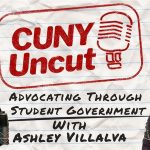[youtube]http://www.youtube.com/watch?v=yJJtRWFL_gw[/youtube]Brian Kateman, cofounder of the reducetarian movement, presented his initiative at The City University of New York’s historic TEDx event last semester.
The initiative urges regular, everyday omnivores to simply reduce their meat consumption. Kateman referred to reducetarians as “a community of individuals who are committed to eating less meat for the benefit of themselves and the environment.”
Kateman, who graduated from the College of Staten Island’s Macaulay Honors program with a degree in Biology in 2011, was also CSI’s Salutatorian. A former Jeannette K. Watson Fellow, he worked three consecutive summers of paid internships with the Earth Institute Center for Environmental Sustainability (EICES) at Columbia University.
Using what he learned as a Biology major, a researcher at EICES, and as an intern at Echoing Green, a not-for-profit that invests in and supports outstanding emerging social entrepreneurs to launch new organizations that deliver bold, high-impact solutions, Kateman aimed his attentions at the personal and global issue of meat consumption with respect to human health, the environment, and the lives of farm animals.
During his presentation at the TEDx CUNY event, he discussed the small but impactful ways he personally tries to help the environment. “I gleefully present my refillable cup to the Starbucks barista; I shop at Trader Joe’s and always bring my Go Green bag; I spend one to two minutes in a fit of confusion trying to recycle the fork, bowl, food, napkins, and lid that constitute my salad.”
He continued to explain that while he does many things that he feels are eco-friendly, he is aware, like most people, that there is much more that he could do. “I could compost, and I don’t. I could walk through Central Park, and I don’t,” he told the audience.
The main thrust of his presentation was not only how meat production accounts for 20 percent of global greenhouse gas and that producing one pound of animal protein requires ten times more water than one pound of grain protein, but that it is difficult to get an initiative—no matter the cause—to work without a term that accurately describes what it is and gets the majority of people to follow.
Kateman illustrated this by confessing that he is a vegan and then addressing the change in the audience response, noting that the term vegan instantly causes “your perception of this person to in some way immediately change.”
He then admitted that he is not, in fact, a vegan but simply used that term as an example of how labels are powerful yet sometimes damning tools that could work against a righteous initiative.
This is where the reducetarian initiative comes in. The term literally means to reduce one’s own meat consumption. It allows, as Kateman explains, that reducetarians “set manageable and therefore actionable goals to gradually eat less meat. For example, they may only eat meat on the weekends or abstain from eating meat for dinner if they have it for lunch.”
He reiterated that fact that the term someone might use to identify oneself matters by citing a Gallop poll published in 2012 that found that only five percent of Americans identify themselves as vegetarian, but beyond that, “a separate poll found that among those who considered themselves to be vegetarian, two thirds of them indicated that they had eaten meat.”
Kateman finished his presentation by urging the attendees to commit to becoming reducetarians “right now,” by explaining “yes, you can change the world by ordering a smaller steak,” adding, “Save the planet and better your health, right here, right now, and become a reducetarian.”
For more information on the reducetarian initiative and to take the #LessMeat pledge, visit www.reducetarian.com.

![[video] CSI Macaulay Honors Alumnus Urges Reduced Meat Consumption for Health and the Environment](https://csitoday.com/wp-content/uploads/2015/01/kateman-cuny.jpg)













